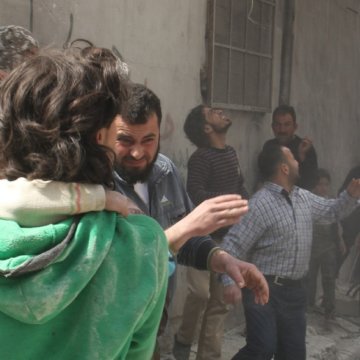- About
- Topics
- Picks
- Audio
- Story
- In-Depth
- Opinion
- News
- Donate
- Signup for our newsletterOur Editors' Best Picks.Send
Read, Debate: Engage.
"Please make it so that my brother did not die for nothing," my Syrian friend asked out into Berlin's springtime air while we chatted yesterday.
The revolution my friend and his people launched more than five years ago was the cause his brother died for. A quarter of a million Syrians have lost their lives to this cause, whether they believed in it or not.
For my friend, connecting the hopes of the revolution to the blood spilled - his own brother's included - brings him immense guilt.
And yet he desperately clings to the idea that it will all have been worth it.
This week negotiations have recommenced in Geneva following a reduction in hostilities in Syria in recent weeks.
But exiled Syrians like my friend in Berlin suspect that if a political solution comes, it will be a hollow one. In order to remove Assad from Syria, a certain amount of pandering from the West will most likely be necessary - and how will that bring justice for victims like his brother?
Amnesty International agrees:
"With war crimes, crimes against humanity and other abuses being committed with impunity in Syria it is essential that justice, truth and reparation form a key part of any agreement. Those who ordered, carried out or allowed such crimes to happen must be brought to justice."
"Yet this crucial pillar is not on the agenda in Geneva and risks being sacrificed in the interests of political expediency."
In the statement, Amnesty's researcher Neil Sammonds argues that the United Nations Security Council has failed to address the issues of impunity and justice in Syria, failing people like my friend who dream of returning home and building the free Syria their revolution aspired to.
